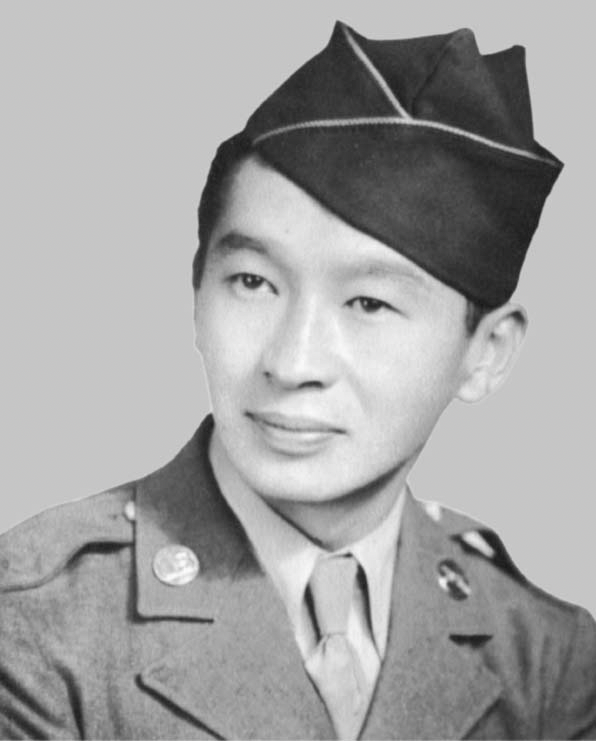Go For Broke! Masato Nakae – The Lone Defender of Pisa
Masato “Curly” Nakae was born on December 20, 1917, in Haena, on the island of Kauai, Hawaii. The son of Japanese immigrant parents, he grew up in a farming family where he learned discipline, humility, and perseverance under the Hawaiian sun.
September 26, 2025

 Masato Nakae – The Lone Defender of Pisa
Masato Nakae – The Lone Defender of Pisa
Masato “Curly” Nakae was born on December 20, 1917, in Haena, on the island of Kauai, Hawaii. The son of Japanese immigrant parents, he grew up in a farming family where he learned discipline, humility, and perseverance under the Hawaiian sun. Like so many Nisei of his generation, Nakae lived between two worlds—American by birth, Japanese by heritage. When Pearl Harbor was attacked in December 1941, suspicion fell heavily upon Japanese Americans, their loyalty questioned, their rights curtailed. Yet for Nakae, there was never any doubt. America was his country, and he would prove it in the most dangerous way possible—on the battlefield.
In February 1942, Nakae enlisted in the U.S. Army at Honolulu. He was assigned to Company A of the 100th Infantry Battalion, a unit that would later merge into the legendary 442nd Regimental Combat Team. This all-Nisei formation carried a double burden: to fight not only against the Axis on foreign soil, but also against prejudice and mistrust at home. Their motto—Go for Broke—meant to risk everything, to throw all into the fight, no matter the odds. Nakae would come to embody that creed.
On August 19, 1944, near Pisa, Italy, the full weight of that motto was tested. Nakae’s platoon came under a ferocious German assault, with machine guns chattering and mortars exploding all around them. Early in the fight, a shell fragment destroyed Nakae’s weapon, leaving him momentarily defenseless. But he refused to yield. Snatching up the rifle of a wounded comrade, he fired rifle grenades into the advancing enemy, halting their momentum.
When German troops pressed closer, Nakae hurled hand grenades with devastating precision, breaking up their formations and buying precious time for his platoon. Then, a mortar blast tore into him, leaving him seriously wounded. Bleeding, battered, and alone, Nakae refused to abandon his position. He kept fighting until the attack faltered, his defiance standing as an unbreakable wall that saved his comrades from destruction.
For his extraordinary valor that day, Masato Nakae was awarded the Distinguished Service Cross. But like so many of his Nisei brothers, the recognition fell short, diminished by the prejudice that had haunted Japanese Americans throughout the war years. It was not until 2000, following a congressionally mandated review of Asian American service records, that the truth was finally acknowledged. In a White House ceremony, President Bill Clinton presented the Medal of Honor to Nakae’s family—at last honoring the heroism his fellow soldiers had always known to be beyond question.
After the war, Nakae returned to Hawaii. He built a quiet life in Kaneohe with his family, living without fanfare, carrying the weight of memory. On September 4, 1998, at the age of 80, he passed away and was laid to rest at the National Memorial Cemetery of the Pacific—the Punchbowl—in Honolulu. His gravesite, Section U, Site 1446, is now a place of pilgrimage, where visitors pause to remember a man who once stood alone against the fury of battle.
But his story does not end in Hawaii. In Italy, where his defiance once stemmed the tide, the memory of Masato Nakae endures. At Camp Darby in Tuscany, a square was dedicated in his honor: the PVT Masato “Curly” Nakae Freedom Square. It stands as a testament to the lone defender whose courage safeguarded his comrades and whose name carries the spirit of the Nisei legacy across continents.
At Ghosts of the Battlefield, we are working to ensure that stories like Nakae’s—and those of his brothers in the 100th Infantry Battalion and 442nd Regimental Combat Team—are preserved and retold for future generations. Their courage was not just a matter of battlefield valor; it was a challenge to prejudice, a declaration of loyalty, and a sacrifice given freely for a nation that too often doubted them.
Masato Nakae’s story is not just about one man’s bravery in the hills near Pisa. It is the story of an entire generation of Japanese American soldiers who proved that loyalty and sacrifice know no race, and that even when history turns against you, courage can still light the way forward.

